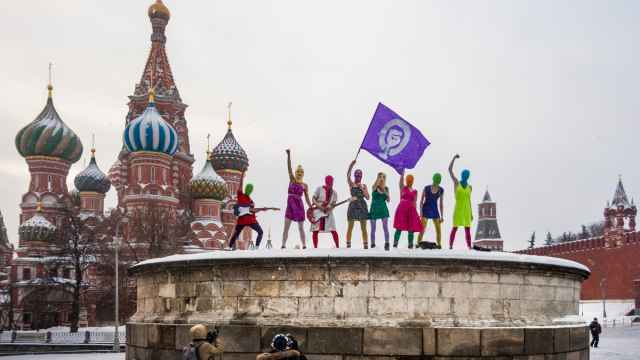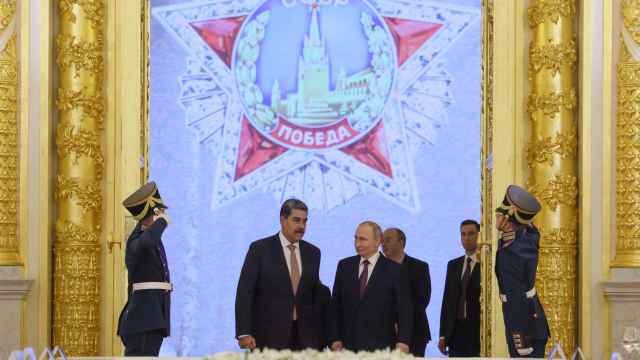We can't know for sure what recommendations U.S. military chiefs are giving to Defense Secretary Chuck Hagel and President Barack Obama about the situation in Ukraine, but it's not hard to guess.
The Army is telling Hagel that declining budgets, 13 years of war, and sequestration in 2013 have left them with only one or two deployable brigades beyond those in Afghanistan today.
The Navy and Marines are telling him that the shift to the Pacific and concerns over Iran and Syria have positioned their carriers and troops largely out of range of Ukraine.
The Air Force can help only if a shooting war is the goal.
Special Operations forces can infiltrate and cause problems, but they cannot turn the tide against a modern Russian Army deployed in a region that has a strong Russian majority.
NATO has spent two decades trying to convince Russia that its purpose is no longer to counter or to threaten it with military might. Today, Russia can see the truth of those claims.
NATO has decreased its overall troop strength. The U.S. reduced its posture in Europe to two active duty brigades. The result is that NATO is not able to offer any significant military leverage in the case of Ukraine. NATO countries that border Russia are taking notice.
What happens in Crimea, Ukraine or any other European country cannot be solved by the Pentagon. This is the first lesson for the West in the Ukrainian situation and one it must accept. For the first time in the post-World War II era, U.S. and Western diplomats must come to the negotiating table without their trump card — the world superpower's military.
What the diplomats will do remains to be seen over the next several days. They have some strong cards they can play.
The wealth of Russia's elite today is heavily integrated with Western investments and banks. Cutting off access to these assets would put tremendous pressure on the corrupt elite running the country. Russia's hard-won membership in the Group of Eight and World Trade Organization could be stripped away, further hobbling the Russian economy.
President Vladimir Putin can be deterred if the West is willing to take the drastic steps that would punish Russia. The situation in Ukraine is not so much about what Russia is willing to do as it is about what the West is willing to do.
Kevin Ryan, military attache at the U.S. Embassy in Moscow from 2001 to 2003, is director of the Defense and Intelligence Project at Harvard University's Belfer Center for Science and International Affairs.
A Message from The Moscow Times:
Dear readers,
We are facing unprecedented challenges. Russia's Prosecutor General's Office has designated The Moscow Times as an "undesirable" organization, criminalizing our work and putting our staff at risk of prosecution. This follows our earlier unjust labeling as a "foreign agent."
These actions are direct attempts to silence independent journalism in Russia. The authorities claim our work "discredits the decisions of the Russian leadership." We see things differently: we strive to provide accurate, unbiased reporting on Russia.
We, the journalists of The Moscow Times, refuse to be silenced. But to continue our work, we need your help.
Your support, no matter how small, makes a world of difference. If you can, please support us monthly starting from just $2. It's quick to set up, and every contribution makes a significant impact.
By supporting The Moscow Times, you're defending open, independent journalism in the face of repression. Thank you for standing with us.
Remind me later.





